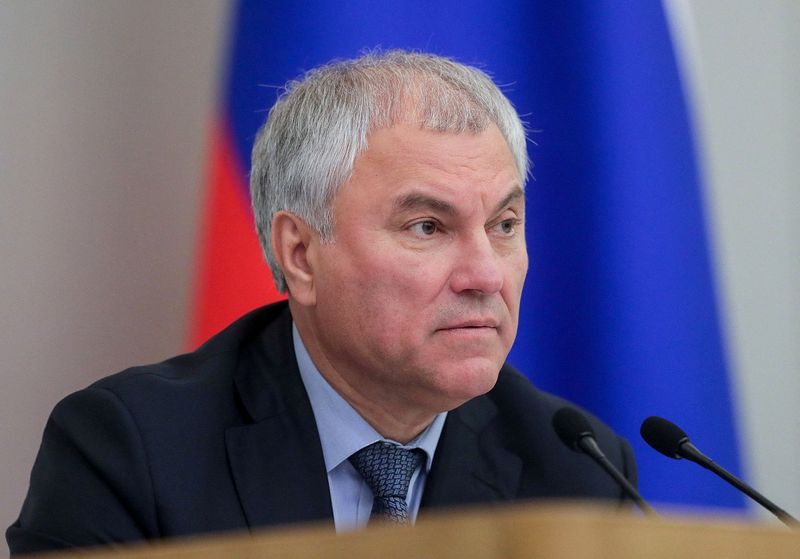By Guy Faulconbridge
MOSCOW (Reuters) - Russia plans to significantly tighten the rules governing the income received by those deemed "foreign agents" and of those who speak negatively about Russia after leaving the country, the speaker of the Russian parliament said on Thursday.
Russian law requires any person or organisation receiving support from outside Russia or who is under foreign influence to register as a "foreign agent", a label that has negative Soviet-era connotations and brings onerous bureaucratic requirements.
Russia says the law is less strict than the 1938 U.S. Foreign Agents Registration Act, though the Russian law has been applied to almost all of the leaders of the divided opposition and is considered by some dissidents to be a badge of honour.
Vyacheslav Volodin, the speaker of the lower house of the Russian parliament, said that the Duma was working on tightening the rules over copyright and intellectual rights payments to foreign agents by forcing them to use special rouble accounts for such payments.
The rules would cover all income from intellectual activity and brands, including works of science, literature and art, performances, broadcasting, inventions and trademarks.
"Those who destroy Russia by insulting its citizens, the participants of the special military operation, should not enrich themselves at the expense of our country," Volodin, who often floats Kremlin-backed initiatives, said on Telegram.
Russia officially presents the war in Ukraine as a "special military operation", though many Russian officials including President Vladimir Putin often call it a war too.
Volodin added that Russia was working on measures to tighten the rules over the income of those people not classed as foreign agents but who have left Russia and speak negatively about Russia.
A total of 881 people and organisations are listed as foreign agents by the Russian justice ministry, including former billionaire Mikhail Khodorkovsky, Nobel prize winner Dmitry Muratov and prominent YouTube blogger Yuri Dud.
Supporters of Putin say the foreign agent law is necessary to counter Western attempts to meddle in Russia's domestic affairs amid what Putin casts as a proxy war in Ukraine between Russia and the West.

Russian officials say that the pro-Western cultural elite which grew up after the 1991 fall of the Soviet Union is being cleared out and replaced by patriotic singers, writers and artists who will ensure Russia remains sovereign.
Opponents of Putin say the law is part of an intricate system of repression which has turned Russia into a brittle authoritarian state in which legendary Russian artistic and scientific creativity is stifled.